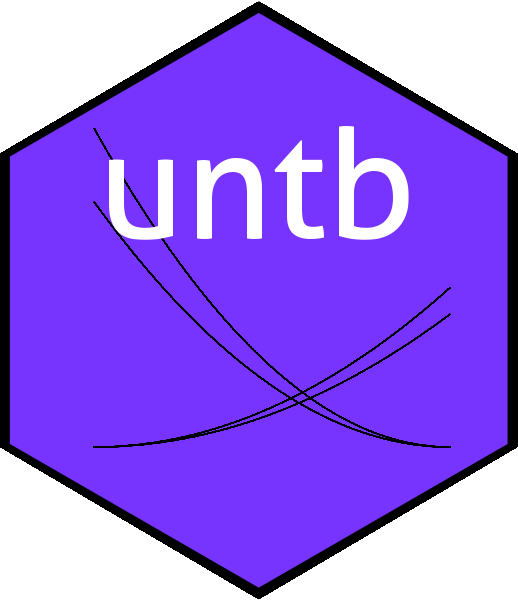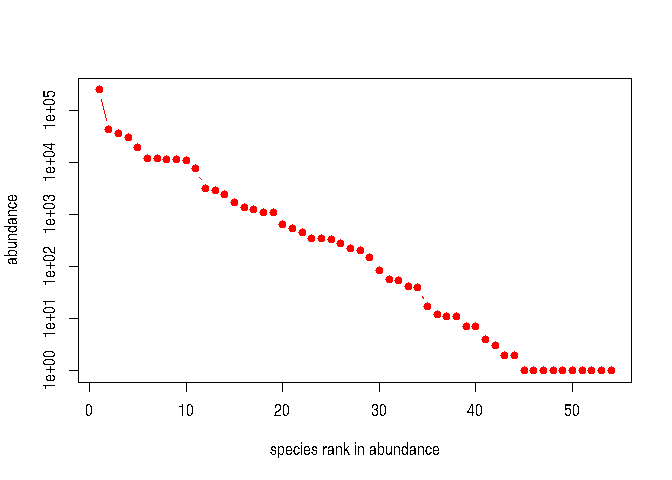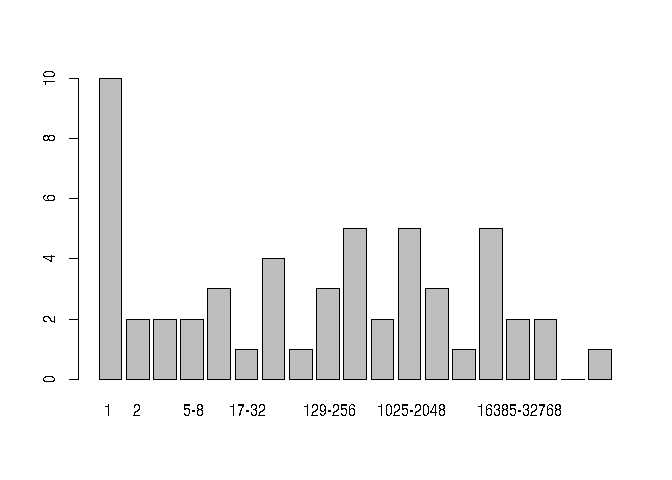Ecological Drift under the UNTB.
The unified neutral theory of biodiversity: the untb package

The untb package provides R-centric functionality for working with Hubbell’s unified neutral theory of biogeography and biodiversity. A vignette is provided in the package. The canonical reference is Hubbell 2001; to cite the package in publications please use Hankin 2007.
Installation
You can install the released version of the untb package from CRAN with:
# install.packages("untb") # uncomment this to install the package
library("untb")
set.seed(0)
The untb package in use
The package has two main classes, count and census. A count object is a named integer vector, with names being species and entries being respective counts. Thus:
x <- count(c(cats=9,pigs=3,dogs=2,rats=1,hogs=1,bats=1))
x
#> cats pigs dogs rats hogs bats
#> 9 3 2 1 1 1
summary(x)
#> Number of individuals: 17
#> Number of species: 6
#> Number of singletons: 3
#> Most abundant species: cats (9 individuals)
#> estimated theta: 2.861392
Above, we see 9 cats, 3 pigs, and so on. Function summary() gives further information. A census object is an unordered factor with entries being the species of each individual:
as.census(x)
#> [1] cats cats cats cats cats cats cats cats cats pigs pigs pigs dogs dogs rats
#> [16] hogs bats
#> Levels: cats pigs dogs rats hogs bats
The package includes example datasets:
data(sahfos)
summary(sahfos)
#> Number of individuals: 460182
#> Number of species: 54
#> Number of singletons: 10
#> Most abundant species: Echinodermata larvae (247200 individuals)
#> estimated theta: 4.649568
We can give a visual summary of a dataset in two ways:
plot(sahfos)

plot(preston(sahfos))

The package also includes the ability to generate random neutral assemblages:
summary(rand.neutral(1000,10))
#> Number of individuals: 1000
#> Number of species: 47
#> Number of singletons: 8
#> Most abundant species: 2 (330 individuals)
#> estimated theta: 10.09543
summary(rand.neutral(1000,10))
#> Number of individuals: 1000
#> Number of species: 52
#> Number of singletons: 16
#> Most abundant species: 4 (117 individuals)
#> estimated theta: 11.50422
References
S. P. Hubbell 2001. “The Unified Neutral Theory of Biodiversity and Biogeography”, Princeton University Press.
R. K. S. Hankin, 2007. “Introducing untb, an R package for simulating ecological drift under the unified nuetral theory of biodiversity”, Journal of Statistical Software 22(12)